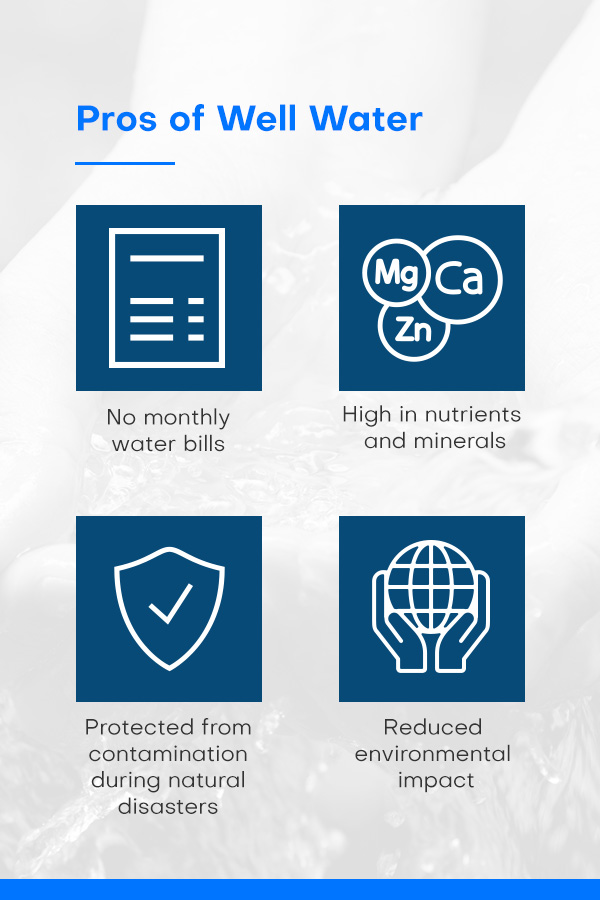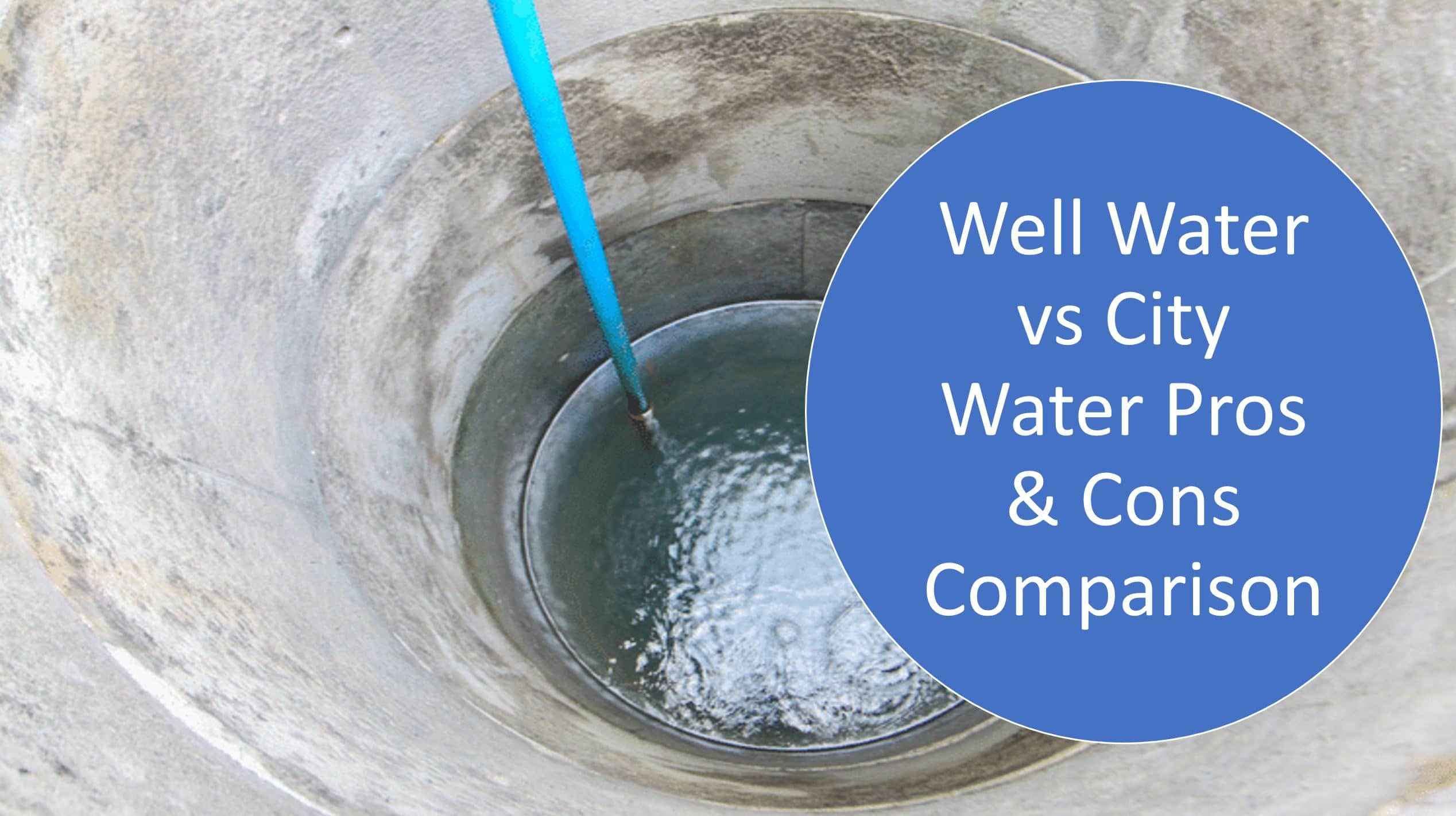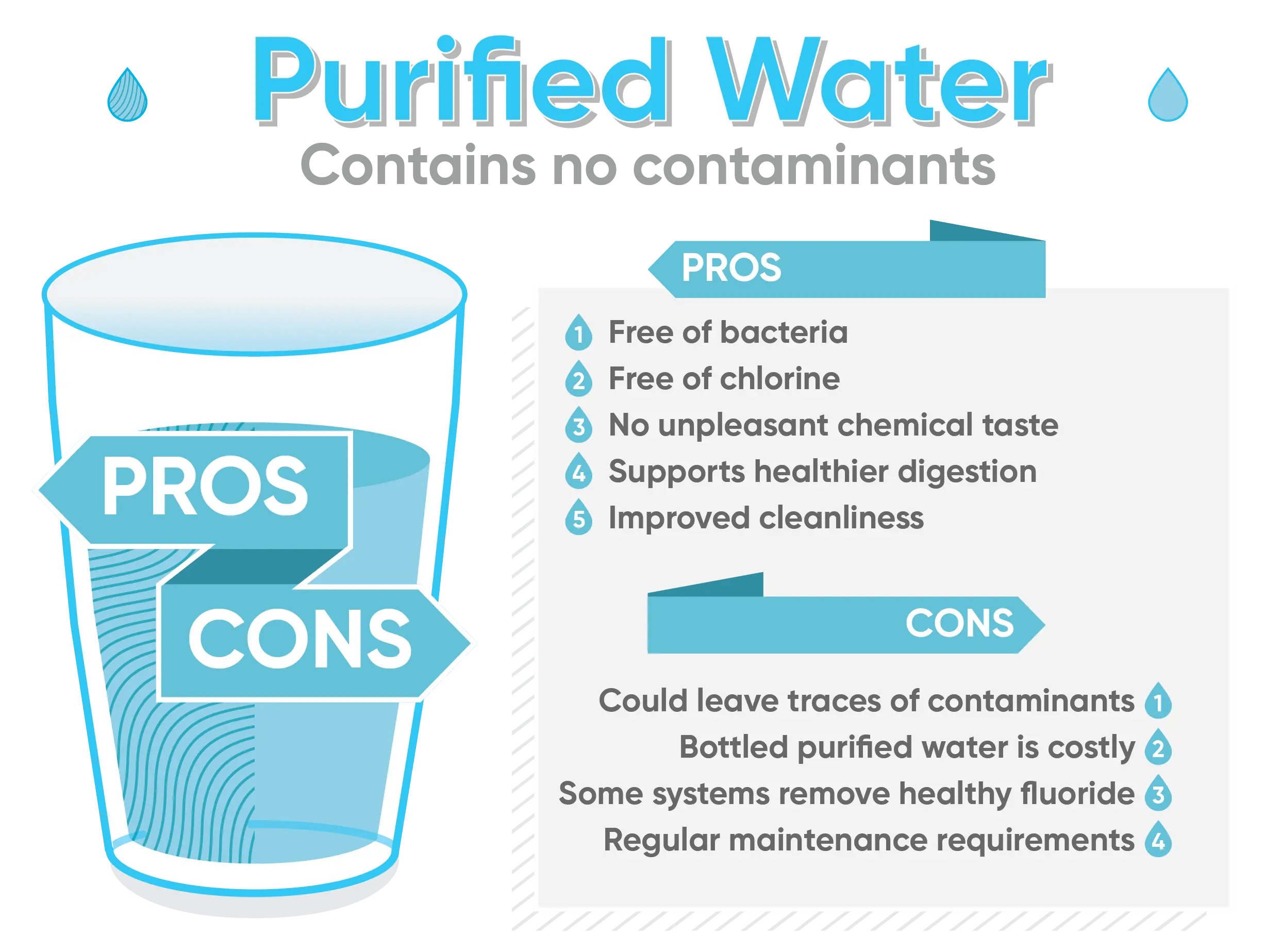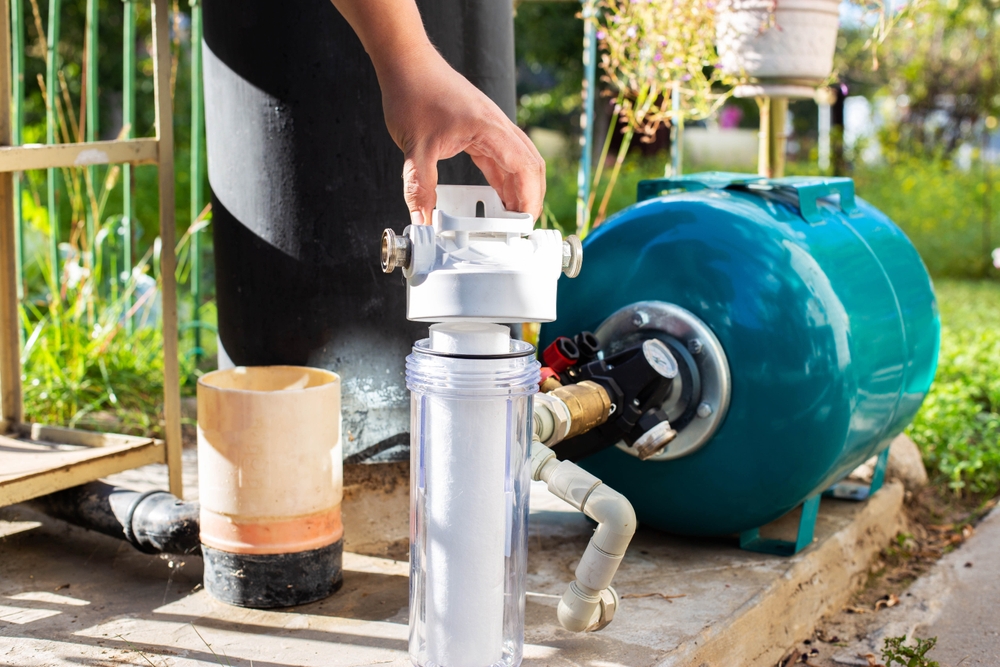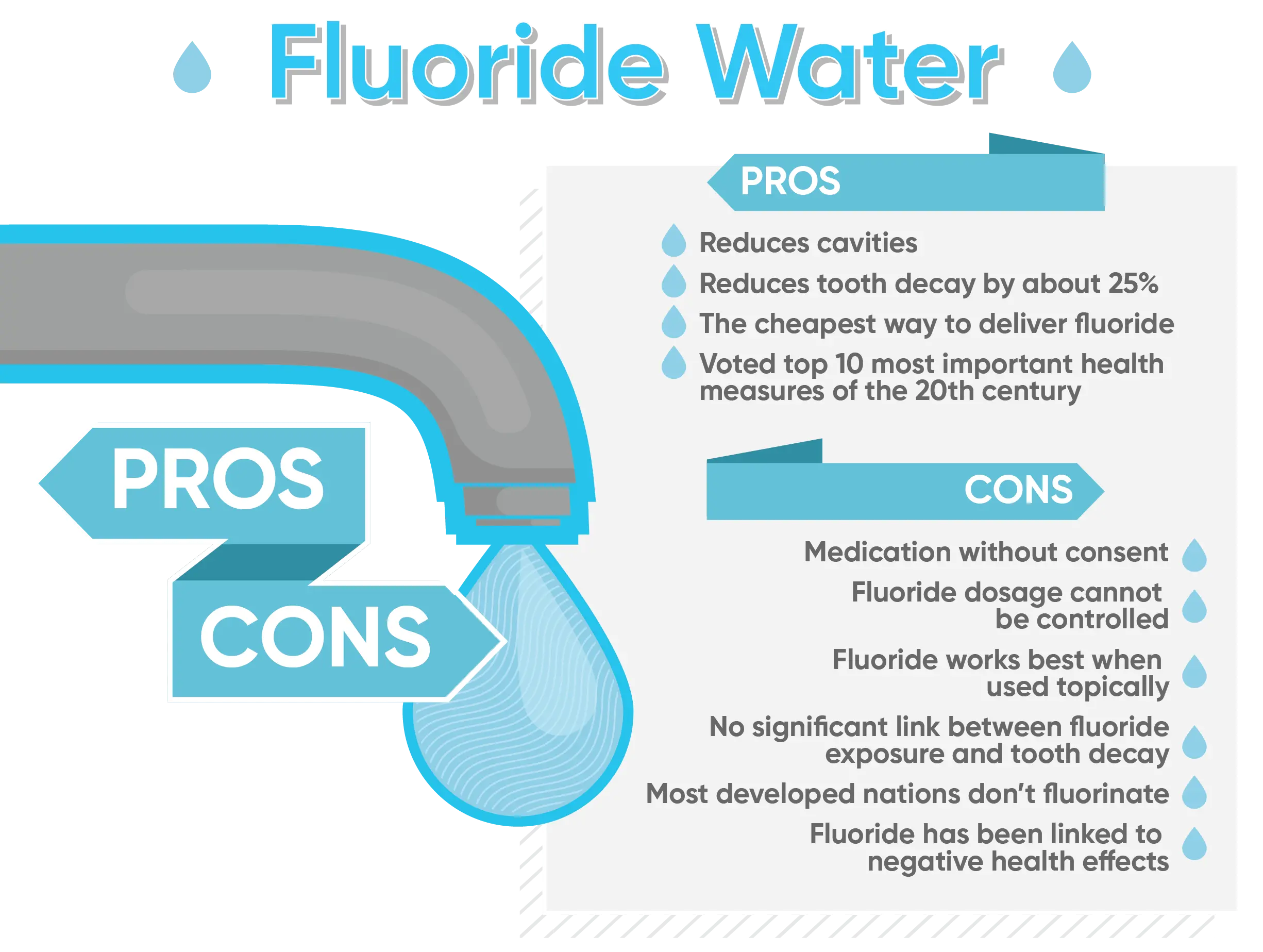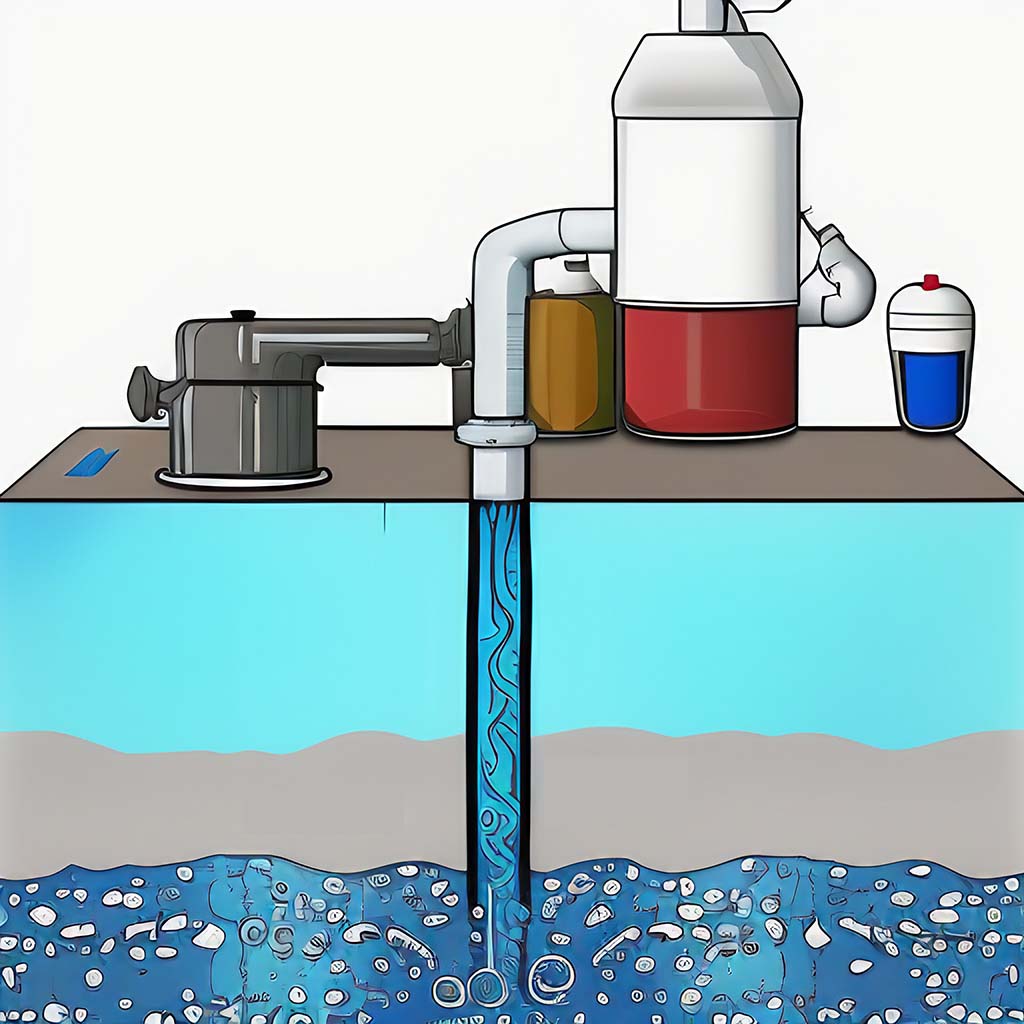Pros And Cons Of Well Water
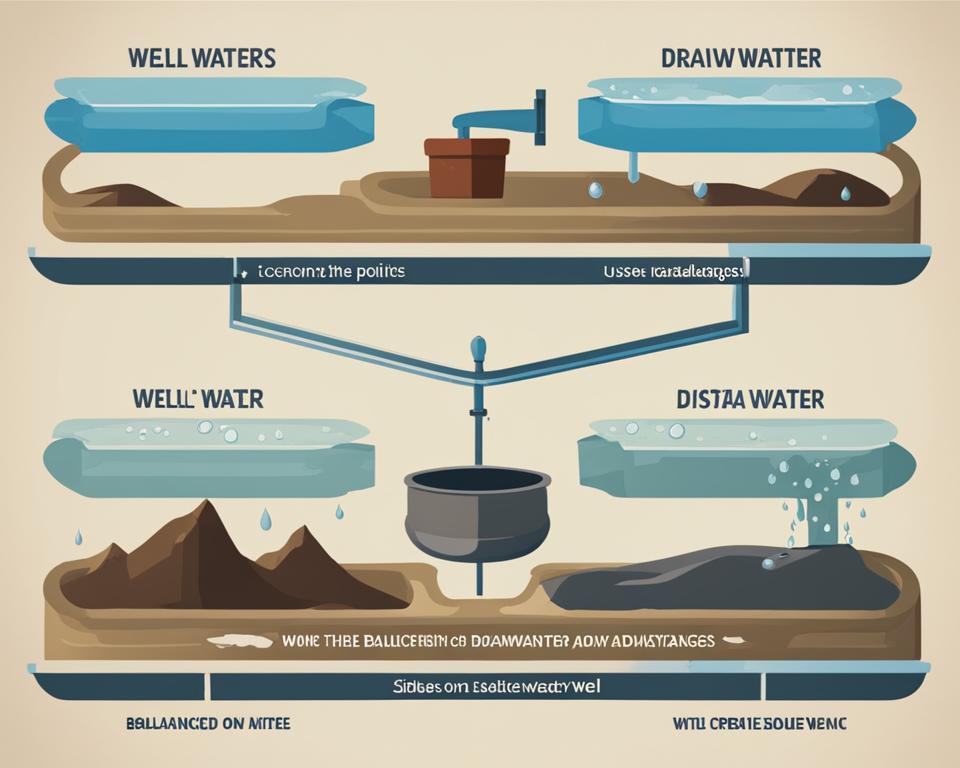
Millions rely on well water for drinking and daily use, but is it truly a safe and sustainable choice? Understanding the potential risks and rewards is critical for homeowners and communities.
This article dissects the pros and cons of well water, providing a balanced view to inform your decisions. We explore everything from cost savings to contamination risks, ensuring you have the facts.
The Upsides of Well Water: Cost Savings and Independence
One of the most significant advantages of well water is its cost-effectiveness. Once the initial investment of drilling the well and installing the pump is covered, the ongoing cost is significantly less than municipal water.
Homeowners avoid monthly water bills, only paying for the electricity to run the pump. This can result in substantial savings over time, particularly in areas with high water rates.
Well water provides independence from municipal water systems. This means no concerns about city water shortages or disruptions due to infrastructure failures.
Many well water users also appreciate the perceived naturalness of their water source. Some believe well water tastes better than treated city water, although this is subjective.
The Downsides: Contamination Risks and Maintenance
The most significant concern with well water is the potential for contamination. Unlike municipal water, which is regularly tested and treated, well water quality is the homeowner's responsibility.
Sources of contamination include agricultural runoff, industrial discharge, septic system leaks, and naturally occurring substances like arsenic and radon. Regular testing is crucial.
According to the Environmental Protection Agency (EPA), private wells are not subject to EPA regulations. This emphasizes the need for individual owners to take responsibility for testing and treatment.
Well maintenance is another responsibility that falls on the homeowner. This includes regular inspections of the well casing, pump, and pressure tank. Failure to maintain the well can lead to costly repairs or even well failure.
Shallow wells are particularly vulnerable to surface contamination. The depth of the well is a critical factor in determining water quality and susceptibility to pollutants.
Testing and Treatment: Ensuring Safe Water
Regular water testing is non-negotiable for well water users. The Centers for Disease Control and Prevention (CDC) recommends testing well water at least once a year for bacteria, nitrates, and any contaminants known to be present in the local area.
Testing should also be conducted if there are changes in the water's taste, odor, or appearance, or if anyone in the household becomes ill with a waterborne disease.
Water treatment systems can address many common well water problems. These systems range from simple sediment filters to complex reverse osmosis systems that remove a wide range of contaminants.
Common treatment options include chlorination, ultraviolet (UV) disinfection, water softeners, and specialized filters for specific contaminants like arsenic or lead.
The choice of treatment system depends on the specific contaminants present and the desired level of water quality.
Geographic Variations: Impact on Well Water Quality
Well water quality varies significantly depending on geographic location. Areas with heavy agriculture may have higher levels of nitrates and pesticides in groundwater.
Industrial areas may be at risk of contamination from industrial chemicals and heavy metals. Naturally occurring contaminants like arsenic and radon are more prevalent in certain geologic formations.
Homeowners should be aware of the potential contaminants in their area and test their water accordingly. Local health departments and well drilling companies can provide information on local water quality concerns.
The Legal Landscape: Regulations and Responsibilities
While the EPA doesn't regulate private wells, some states and local governments have their own regulations. These regulations may cover well construction standards, testing requirements, and abandonment procedures.
It's crucial to understand the local regulations governing well water in your area. This ensures compliance and helps protect the groundwater supply.
Responsibility for well water quality ultimately rests with the homeowner. Proactive testing, maintenance, and treatment are essential for ensuring a safe and reliable water supply.
Next Steps: Informed Decisions for Well Water Users
Well water offers both significant advantages and potential risks. Understanding these factors is crucial for making informed decisions about your water supply.
Contact your local health department or a certified water testing laboratory to schedule a water test. Consider installing a water treatment system if necessary to address any contaminants found in your well water.
Prioritize regular maintenance of your well system to prevent problems and ensure a long-lasting, safe water source for your household. Staying informed is the best defense.

